Explore artifacts of the region’s Native Americans below.
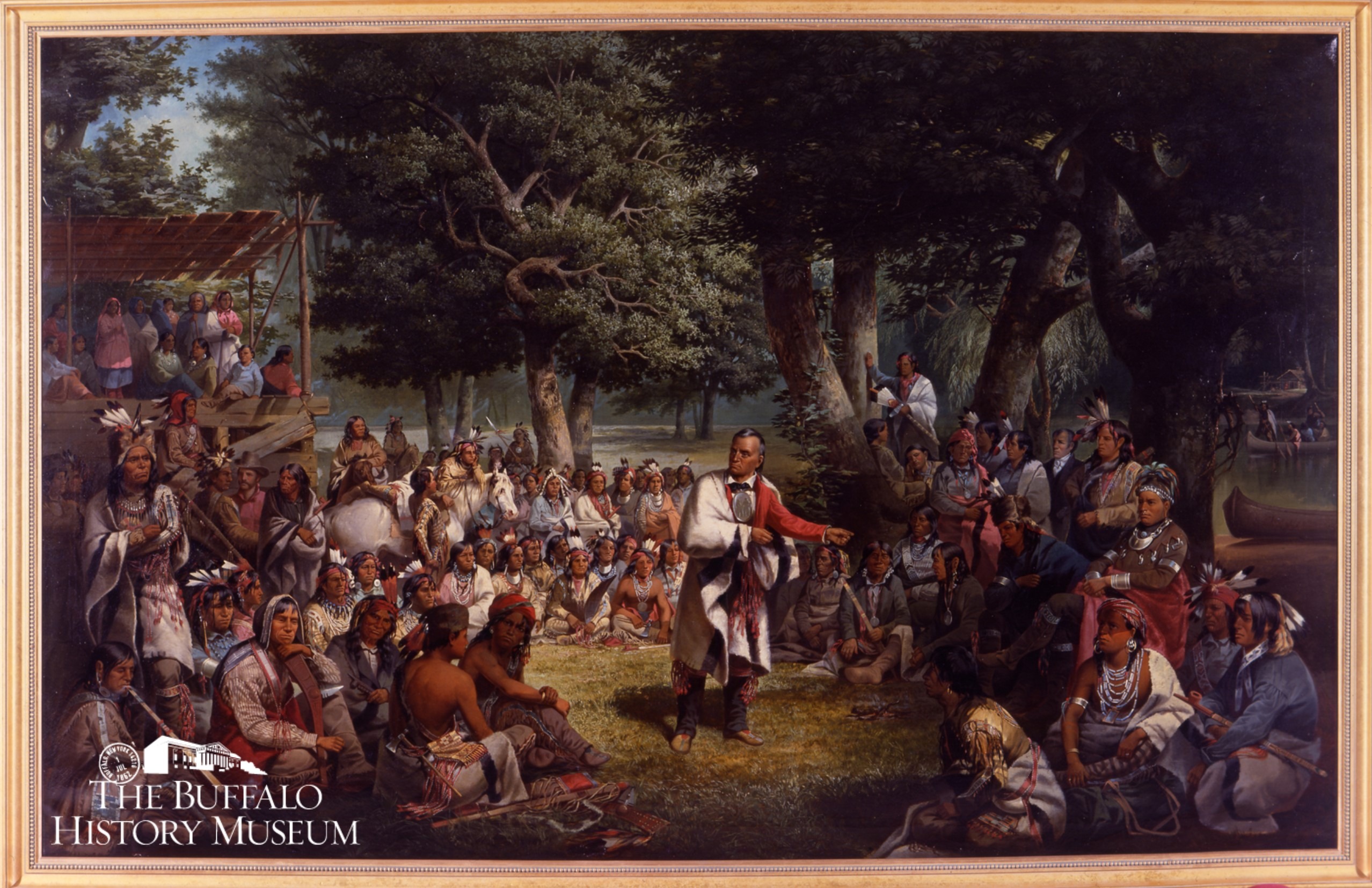
The Trial of Red Jacket
Oil on Canvas
The Trial of Red Jacket depicts a scene in which Sagoyewatha or Red Jacket, a Seneca leader and orator, is on trial for witchcraft after being accused by rivals Handsome Lake and Cornplanter. Red Jacket was tried around 1801 before a council of warriors on the banks of the Niagara River.
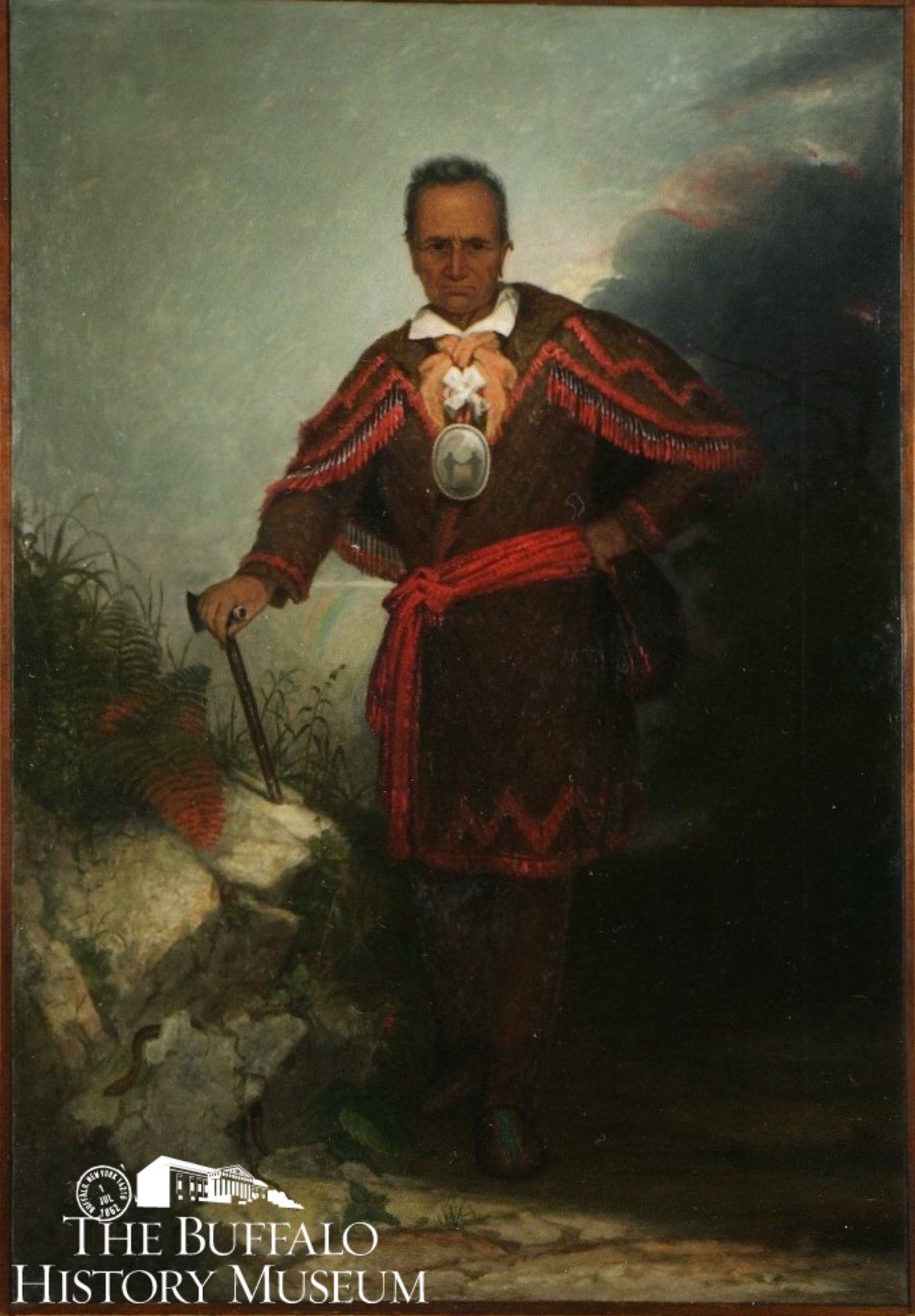
Red Jacket
Oil on Canvas
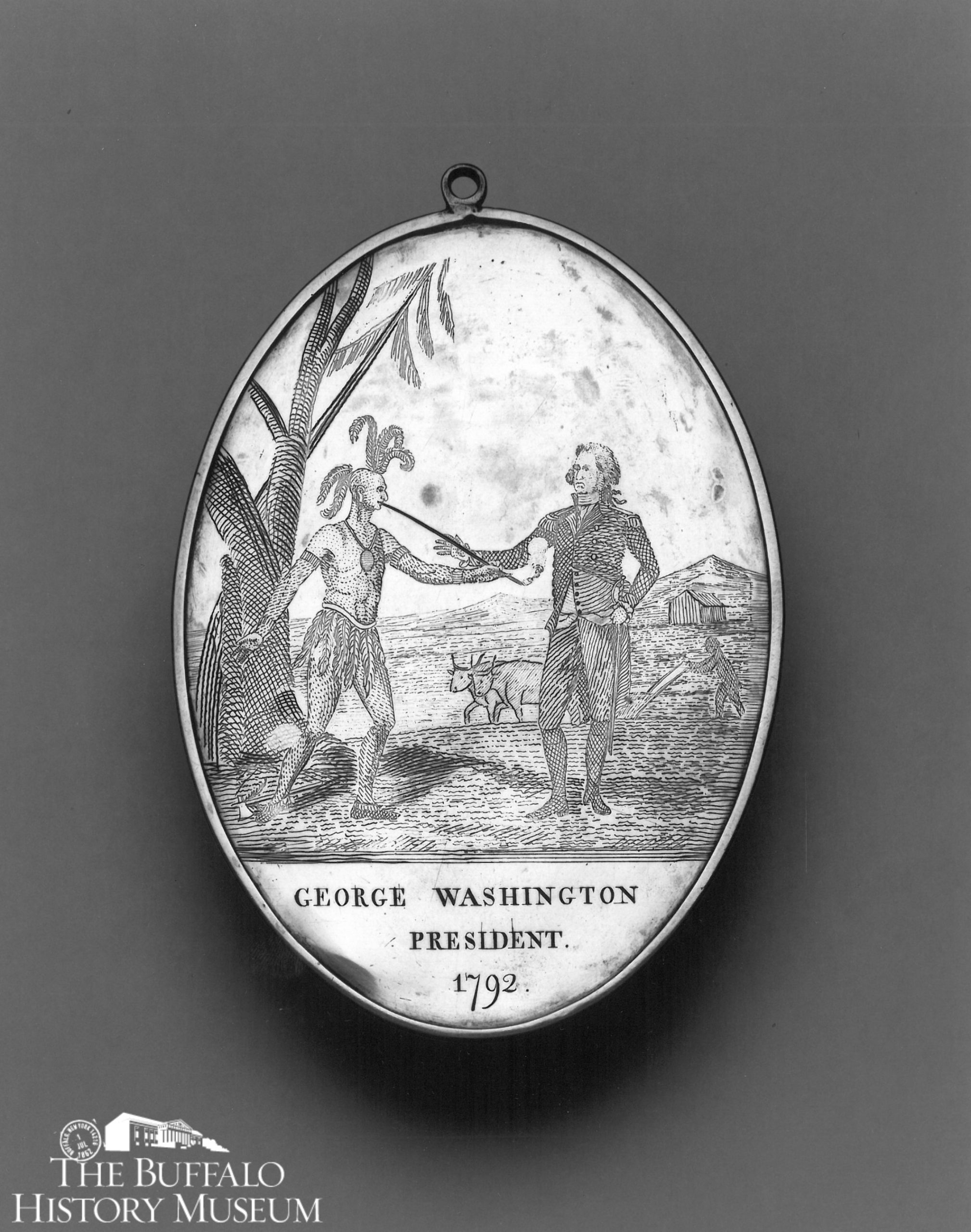
Red Jacket Peace Medal (Front)
Silver
The peace medal presented to Seneca orator Red Jacket by President George Washington in Philadelphia in 1792. The medal bears symbolic imagery of peaceful coexistence between the United States and Native Americans.
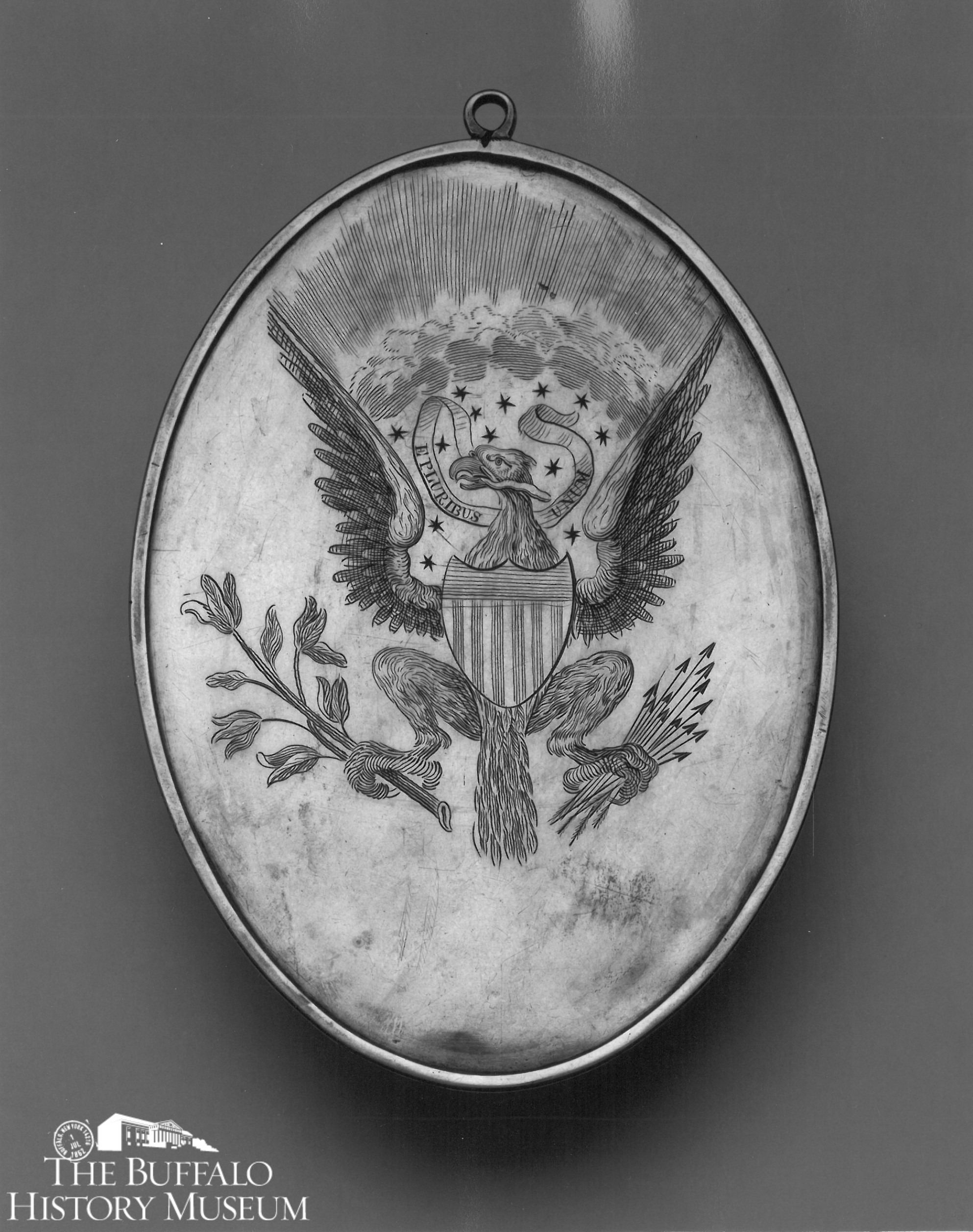
Red Jacket Peace Medal (Back)
The peace medal presented to Seneca orator Red Jacket by President George Washington in Philadelphia in 1792. The medal bears symbolic imagery of peaceful coexistence between the United States and Native Americans.
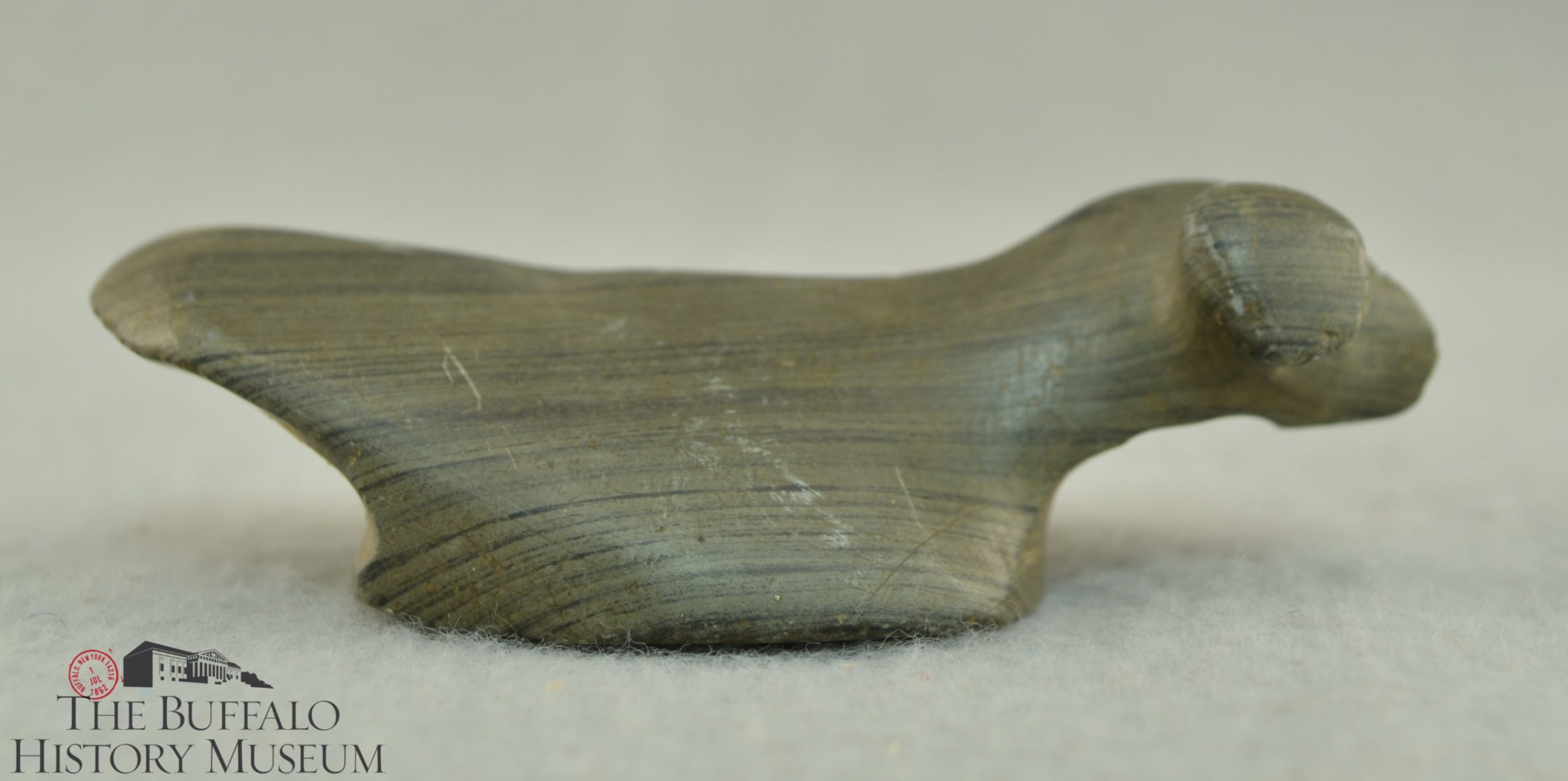
Birdstone
Banded slate
A birdstone or atlatl weight from the archaeological “Woodland Period” in Western New York.
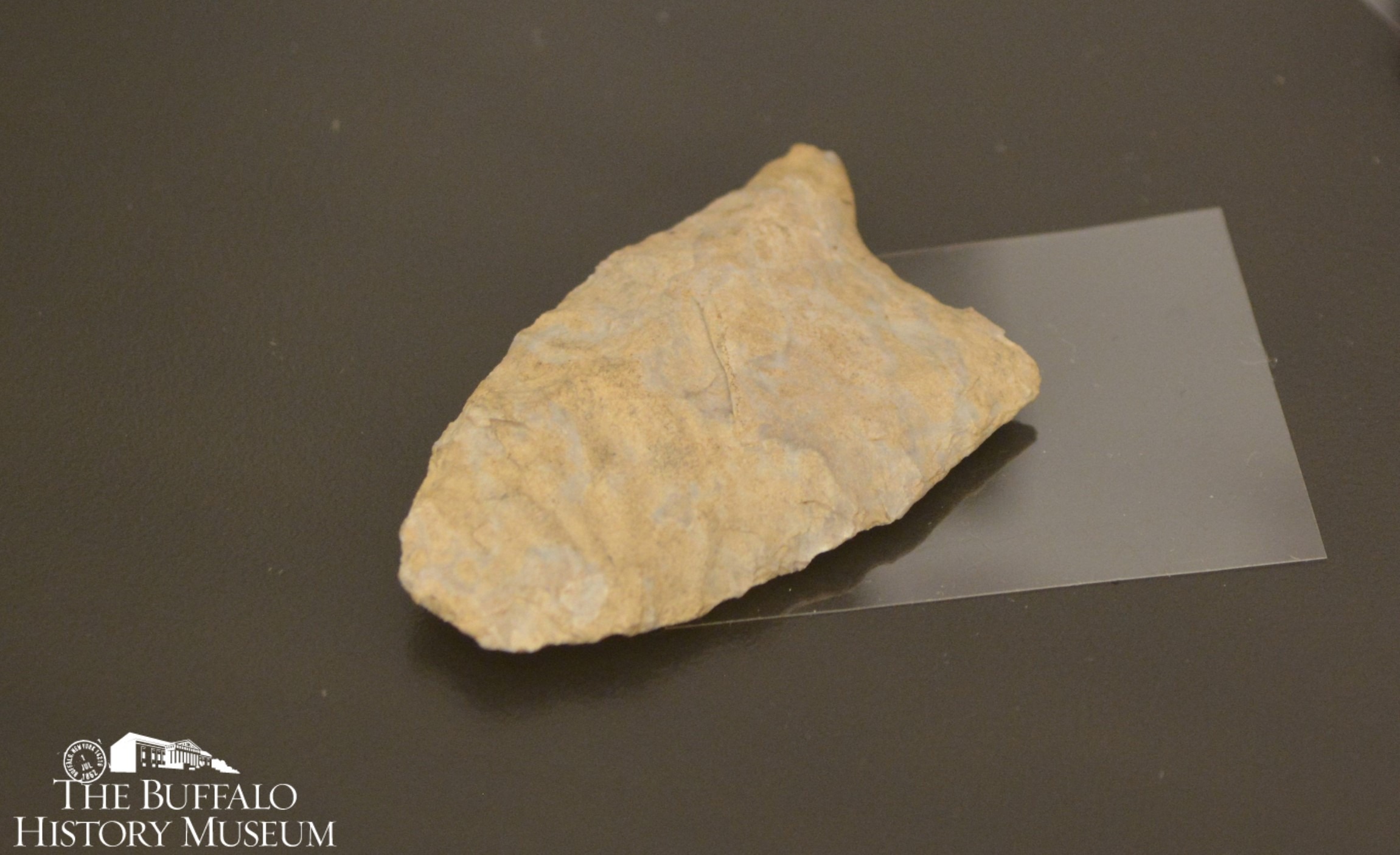
Clovis Point
Chert
A projectile point from the archaeological Clovis culture, highly mobile big game hunters widespread throughout North America approximately 13,500 to 12,900 years ago.
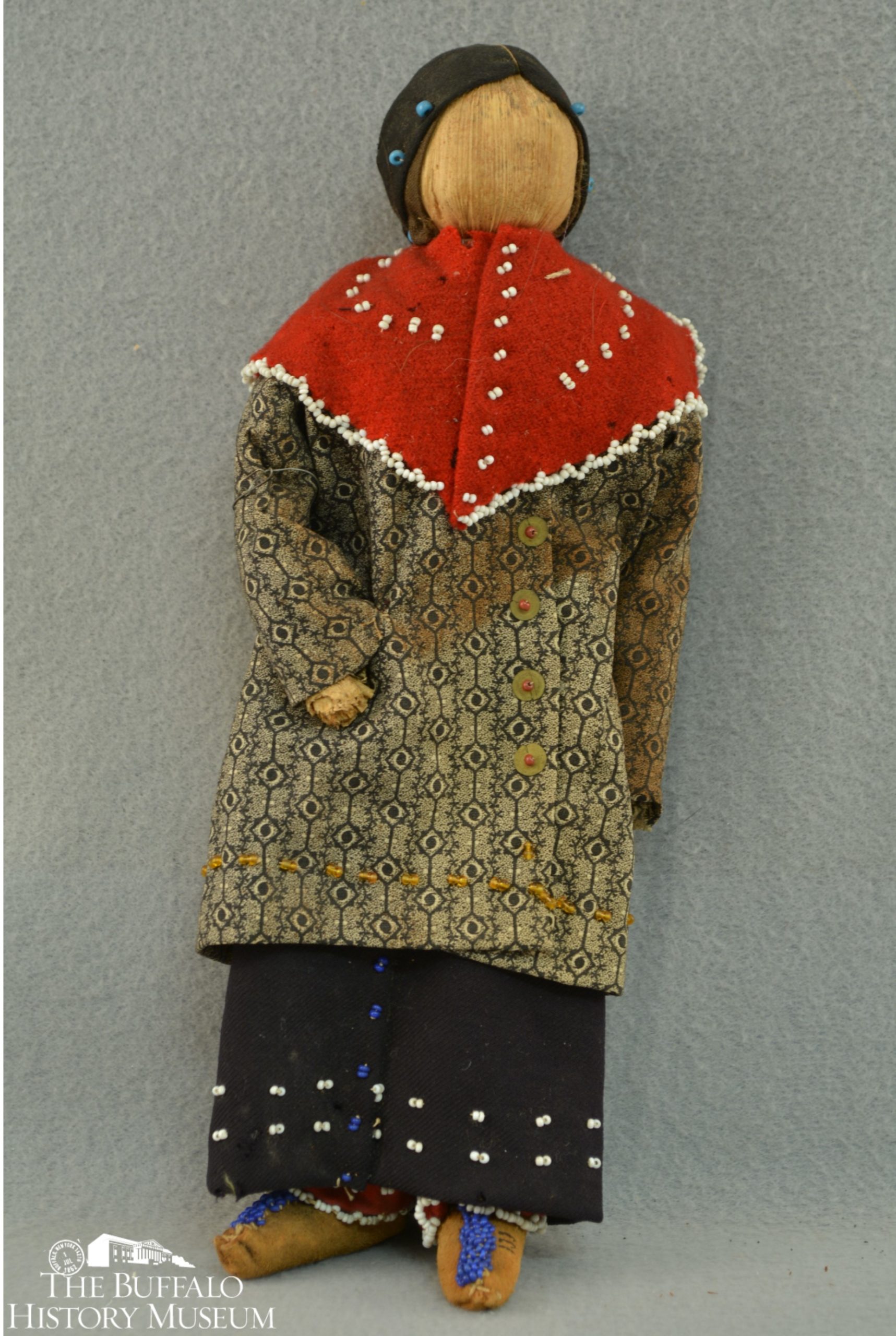
Corn Husk Doll
Corn husks/Cotton/Glass beads
A Seneca corn husk doll made by Mrs. Poodry on Tonawanda Reservation.
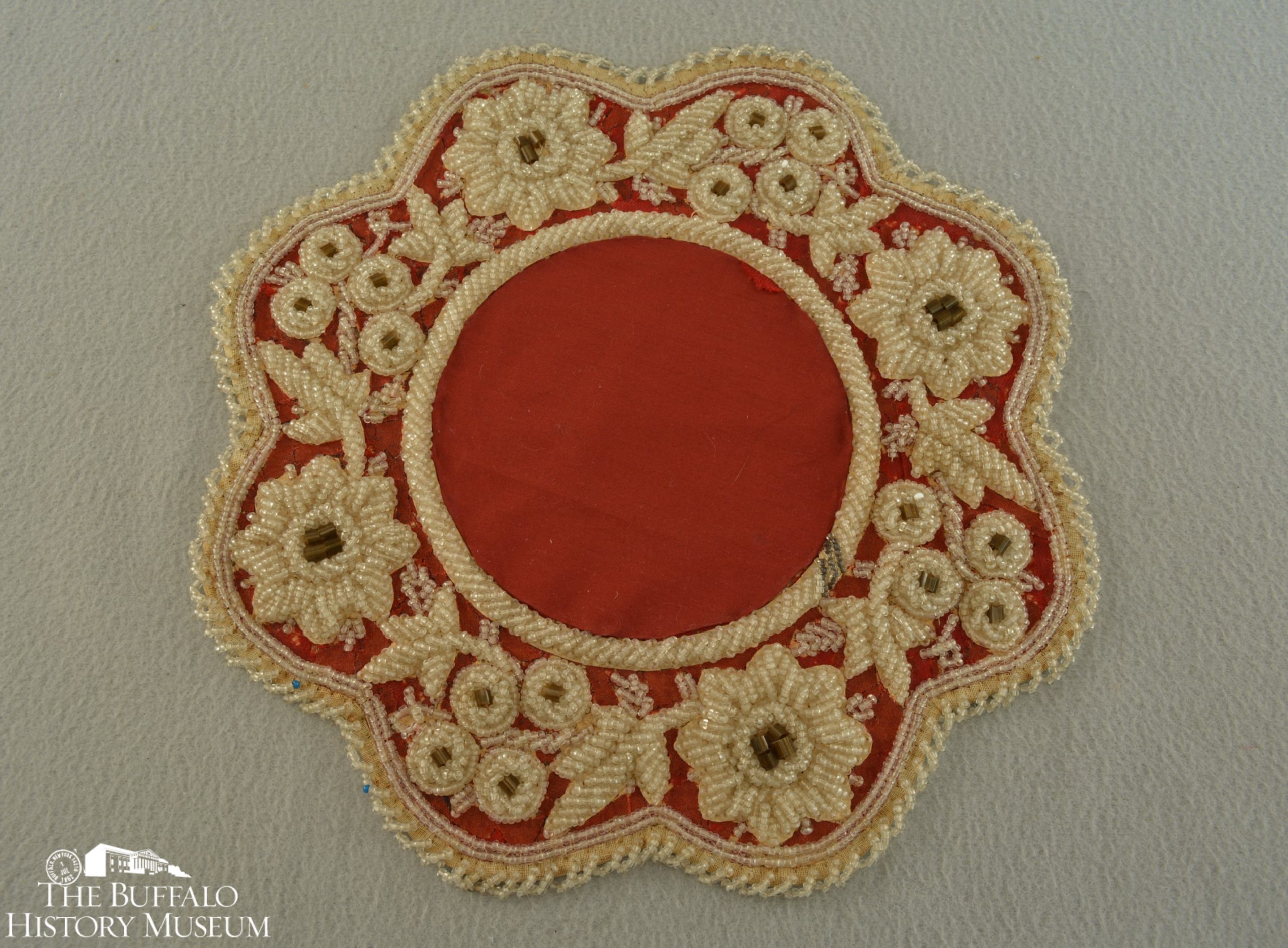
Lamp Mat
Wool/Glass seed beads/Cotton/ Paper
A lamp mat likely made by a Tuscarora artist as souvenir art. This 19th century style of beadwork blended traditional Haudenosaunee (Iroquois) patterns with Victorian fashion elements and household accessories.
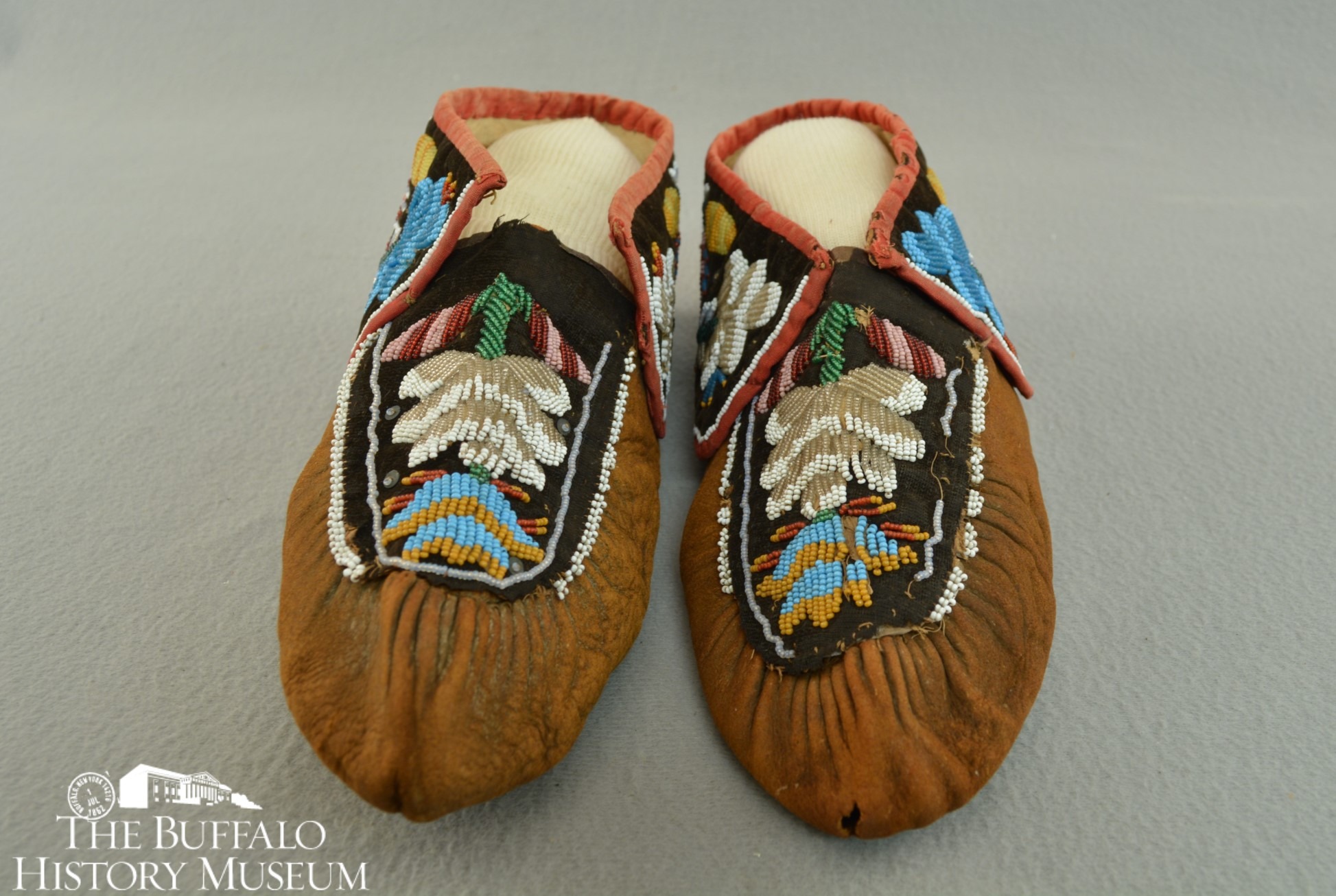
Moccasins (Front)
Hide/ Cotton/ Glass seed beads
A pair of Tuscarora moccasins with extensive beadwork.
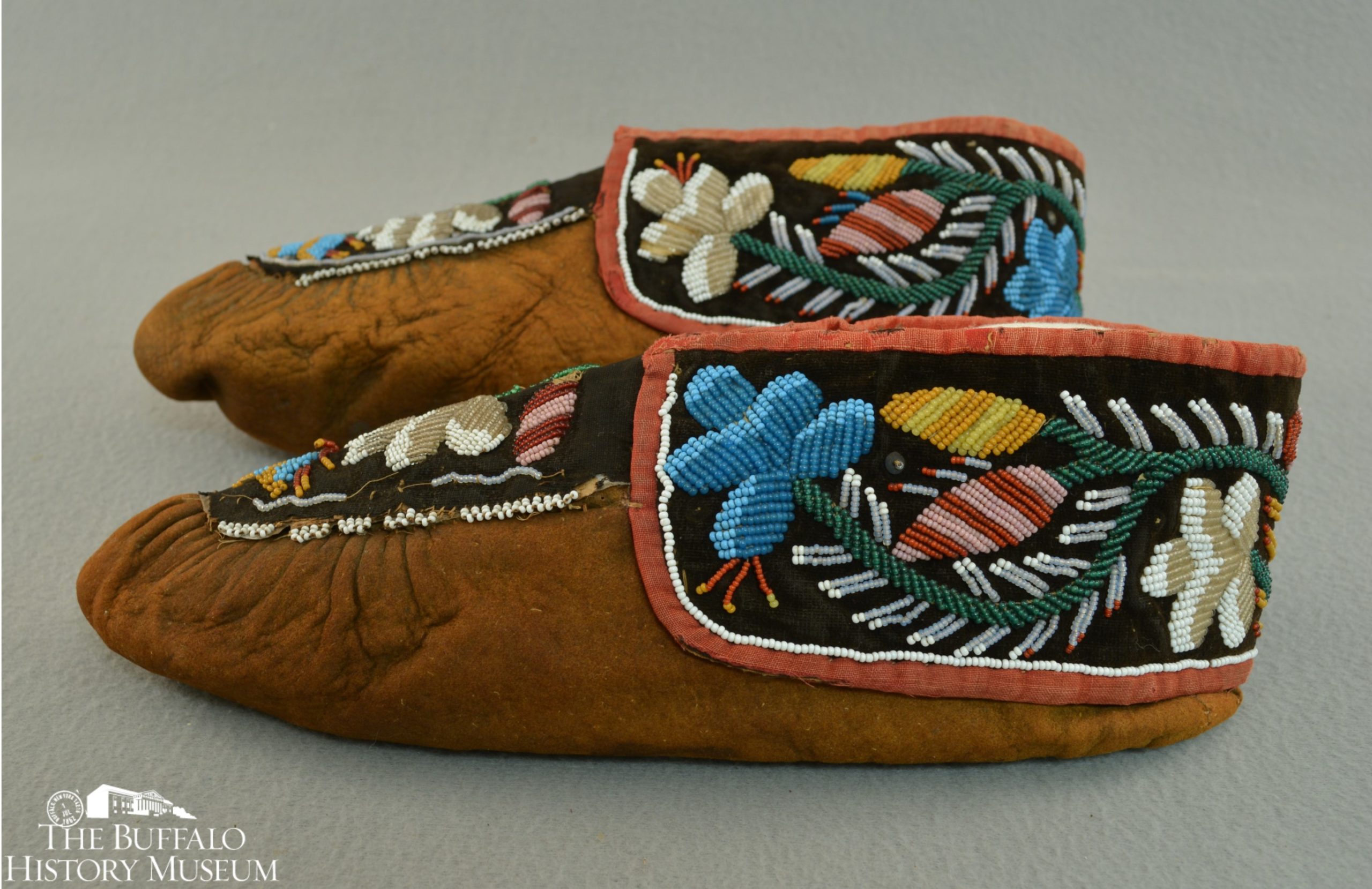
Moccasins (Side)
Hide/ Cotton/ Glass seed beads
A pair of Tuscarora moccasins with extensive beadwork.
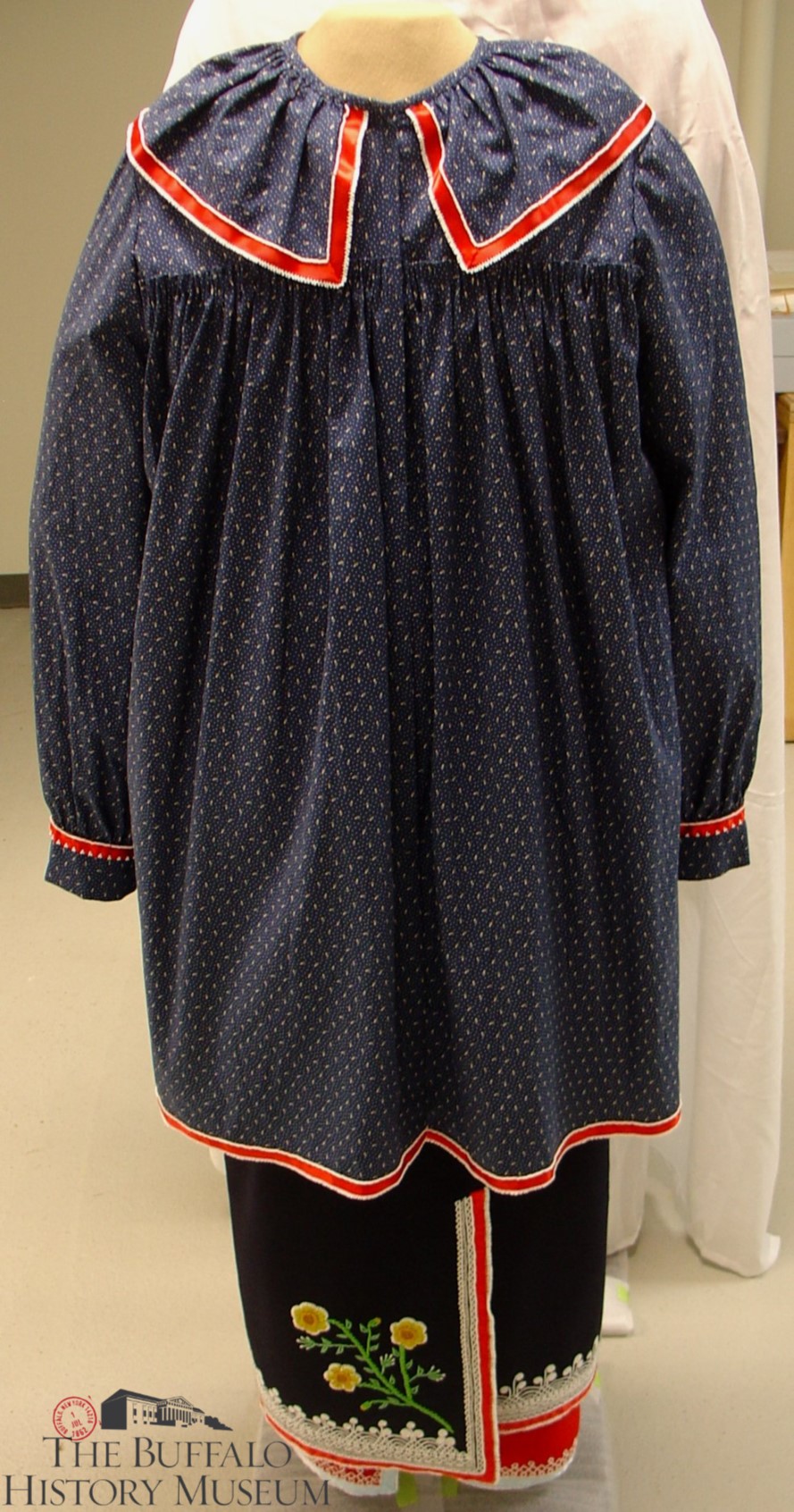
Seneca Women’s Outfit
Cotton/Silk/Metal/Glass beads
Reproduction of clothing for a Seneca woman in the 1850s, based on an 1848 daguerreotype of Caroline G. Parker (1824-1892). Parker was a prominent member of the Seneca nation and sister of General Ely Parker.
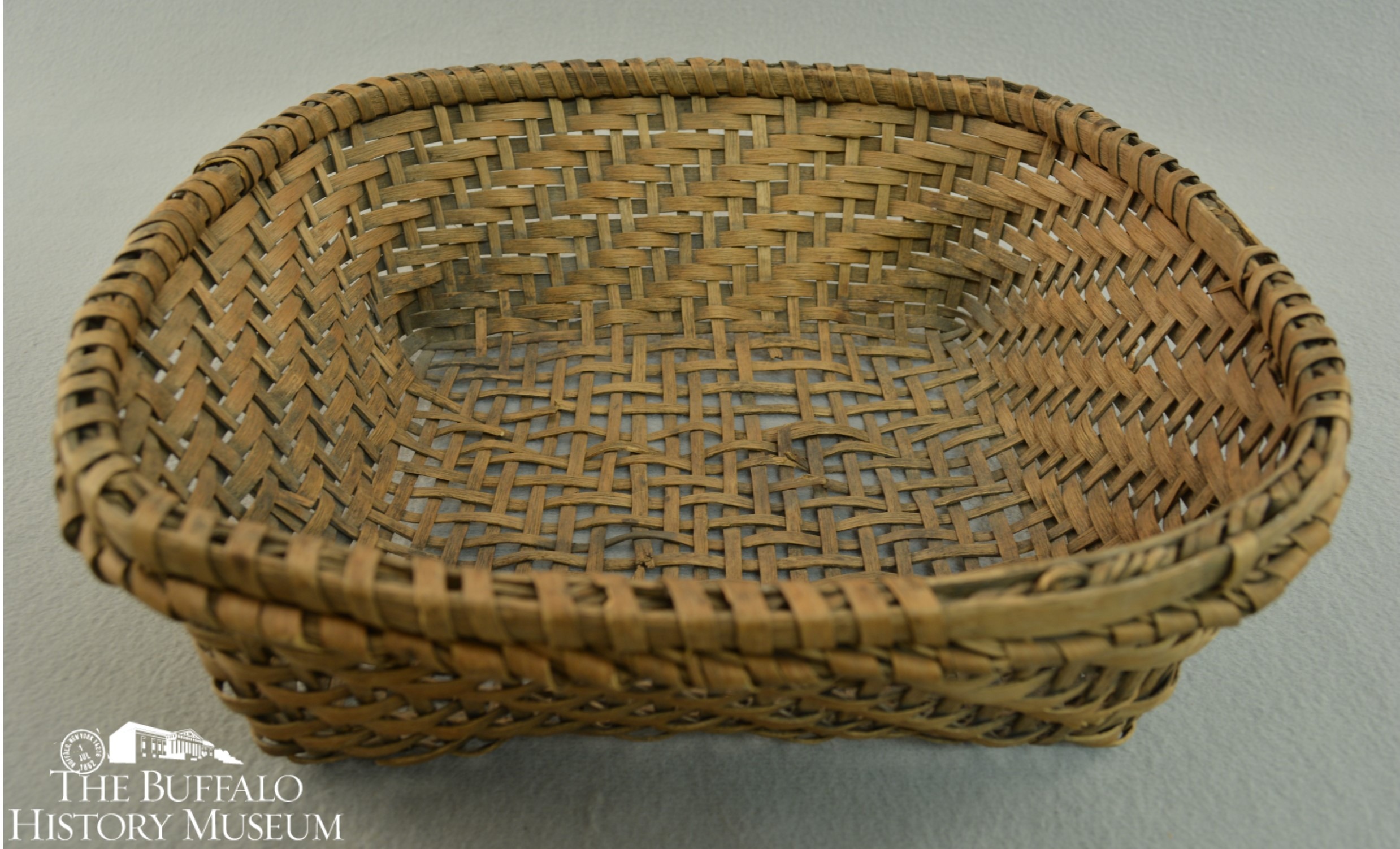
Woven Basket
Bark
This Seneca basket, used for sifting hominy corn, was used on the Cattaraugus Reservation by Mrs. William Crow.